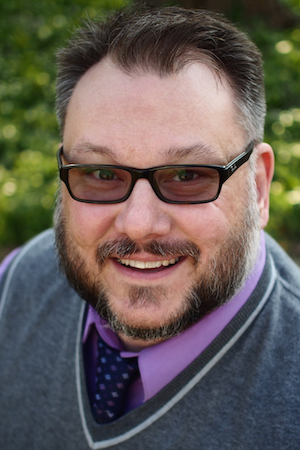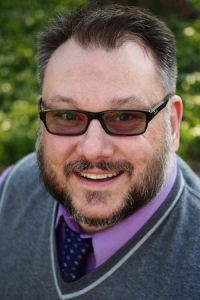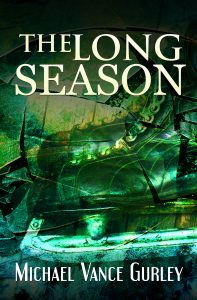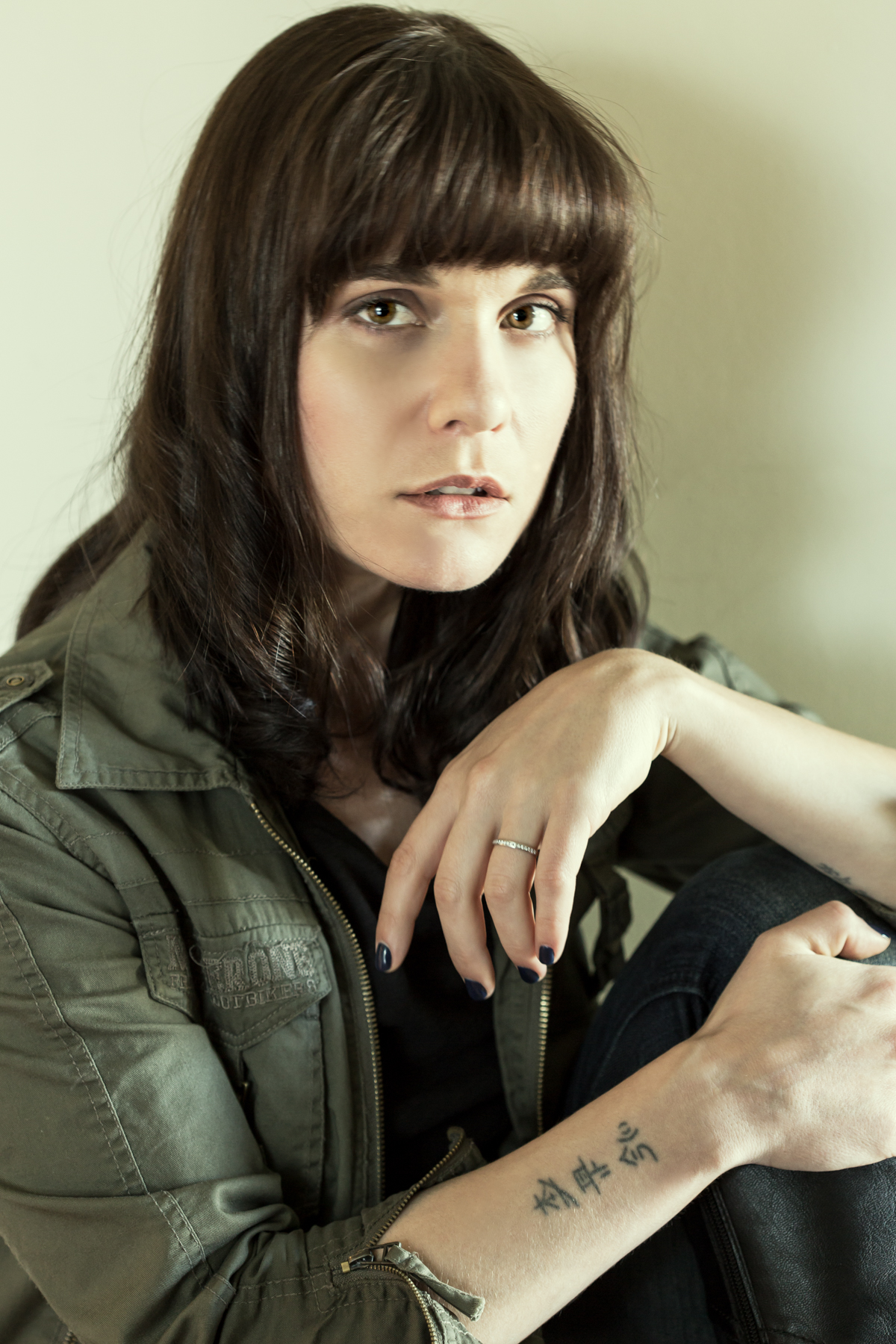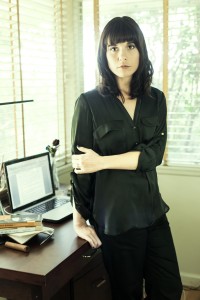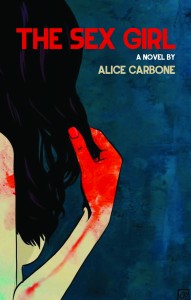We first met Michael Vance Gurley when he won our Pitchapalooza (think American Idol for books) in Anderson’s Bookshop (one of our favorite bookstores) in Naperville, IL. When he pitched us a book about Chicago, The Roaring Twenties, and a gay hockey player with a deep, dark secret, we were hooked. We were sure it was a book. And now, lo and behold, his book The Long Season is out. So we thought we’d pick Michael’s brain about his road to publication.
Read the interview on the Huffington Post.
The Book Doctors: How did you learn to be a writer?
Michael Vance Gurley: I remember specifically wanting to be a writer in the 7th grade, giving horror movie fan fiction to kids, who loved it and wanted more, meaning it was either good or twisted enough for the junior high mind. Creative writing classes helped add depth and purpose to characters and plots that didn’t have a machete in them. I wrote comic books, and learned the value of research, plot design, and character development. After taking a break to work around the clock for years, I decided it was time to stop working so hard at not writing and started a novel. I didn’t know how to structure it. For comics, there were templates online, so I looked there because the Internet has all the answers! Well, maybe not all, but I did some research into writing strategies for novels, like the snowflake method, which was helpful to construct an outline and character sheets. Really, the idea to write about a hockey player from the Roaring Twenties struggling to be his true self, while surrounded by all the razzmatazz of the Jazz Age and the excitement of the sports world, was so strong in my head it was like I was writing it even when I wasn’t. The simple answer is I haven’t learned to be a writer yet, as much as I continually learn to be one. My editor would agree!
TBD: What were some of your favorite books as a kid, and why?
MG: I loved The Adventures of Tom Sawyer and wanted to be him, seemingly able to control minds. My dad’s family is from Mississippi, and after school let out, I spent summers in the South. It was like I hung up my shoes and had a Huck Finn life every summer, so I related to those guys and their wild adventuring. Horror grabbed my attention at a far too early age. I remember reading Stephen King’s Misery and It all night long. I couldn’t put them down. What I read most were comic books. I devoured old Batman, Green Lantern, Fantastic Four, and X-Men. My cousins and uncles gave me boxes of books to read. I vividly remember spreading them out, that wonderful four color processing smell of old comics filling the room, and reading them over and over.
TBD: What are you reading right now?
MG: I love to read and am always reading two or three things at once. I am into classics, sci-fi, YA, steampunk, and pretty much anything. Right now, I’m reading James Baldwin’s Giovanni’s Room. It’s a deep look at the underground gay life of Paris in the 1950s. It was so courageously written, and even though it might draw harsh criticism about demonizing gay life today, it broke ground. I’m also reading Star Trek: Sight Unseen, which follows Riker after the Next Generation movies. He’s such a powerful character, and he inspires me when I need to think of something commanding for a character to say. There’s also an incredibly diverse cast with ridiculous tongue-twister names, which help me free my mind when world building, like I’m doing with my next book. I like to alternate classics or serious novels with fun reads, or just do both at the same time while grabbing a comic book in between.
TBD: Your novel has such a cool and unusual story; how did you come up with the idea for your book?
MG: The 1907 Kenora Thistles gave me the idea. They were a ragtag, underdog hockey team who won the Stanley Cup, back when you could just challenge the champs for a shot at the Cup without having a whole season. One of the boys, Art Ross, grew up to have the leading scorer trophy with his name on it. I was looking at a hockey history book and passed a lot of old team photos until I flipped the page to this one. Back then color photography was more rare than now, a little costly, and exposure times were longer, so people were more conscientious about their poses. They were more intentional in a portrait sense of photography, and less selfie. Their team photo displays these macho iron man athletes, some with their legs curled and draped over each other in what today would be considered an effeminate manner. One of them was not looking straight at the camera, but at another player. In a flash, I thought, what if those two players had a secret? I had to write that story. I changed the time period and location because my story had to take place on my favorite team in my city! But that photo moment is in the book. Sometimes you walk through a museum and pass a hundred paintings and barely glimpse them until you get to the one, and you just know. It was too powerful an image for me to leave uncaptioned.
TBD: What were some of the joys and pitfalls of writing your first novel?
MG: Since The Long Season is a period piece, I did quite a bit of research. I’m a history buff, which meant digging into the cost of a cab ride in the 1920s or what gay life had been like in Chicago was exciting. It actually took up quite a bit of writing time because the net is an infinite suck hole if you let it be, or a fount of information if you take the time to cross-reference. It took me six months of actual writing to get to the final moment in my book, but I feel like I had been writing it in my head for a long time before that. It would fill my mind as I did other things, thinking about what would happen if I tweaked one thing or another. Writing the outline and being able to create whatever I wanted was thrilling. I don’t recall worrying too much about what to do next with a character, or having writer’s block often, since I wrote such extensive outlines. I felt amazing as I wrote the last line, knowing in my soul I accomplished what I wanted with these people.
Then editing woke me back up. Most of the pitfalls happened after the first draft, with learning to let go of bad ideas or weak paragraphs when an editor or trusted friend reviewed it. It brings the phrase ‘kill your darlings’ to a whole new level when they are your darlings what need killing. The art of creating is great. The art of destroying so you can create anew is terrifying.
All that led me to the biggest joy: winning The Book Doctors’ Pitchapalooza, a pitch contest where you get 60 seconds to win them over, in front of a crowd. Your presentation needs to be tight and powerful. They helped connect me to a great editor who shared my vision. I looked for an agent and publisher for about a year, getting rejection letters with great notes in them, while working a time-consuming job. Marketing takes so much effort. It was heartbreaking, but I believe working with my editor, Jerry Wheeler, made my novel ready to compete. The Book Doctors made an introduction to the right publisher, who has loved my work and ideas. Like my favorite band sings, “I’m standing exactly where I’m supposed to be.”
TBD: How did you go about selling your book?
MG: That’s the difficult thing! I thought painting the idea into the written book was so hard I had to make a life goal about it. The real work is struggling to learn the process of finding an agent or publisher, turning hundreds of pages into punchy one-liners and two-page synopses. I entered the Pitchapalooza contest at Anderson’s Bookshop and won, which provided me with insight about what to do next. I also took a seminar on marketing yourself in publishing. It’s a very complicated thing to do. I sent pages to countless places before someone said yes to me. Then the contract came! Although I was so excited and ready, I heeded advice and had an entertainment lawyer help out. It doesn’t become smooth sailing after you get a publisher. They will market, and so will you.
I started simple by establishing a base of potential fans on Facebook by finding authors like me and groups that share my genre, and friending/joining them. I made some great connections by liking author book pages and having them like mine. I contacted many of them directly and just asked. Now my posts reach hundreds of people. I did research about blogs and review sites that would take small press books to review, and I started contacting them. I am scheduling interviews for a blog tour with some giveaways. I arranged a book release party at Anderson’s Bookshop in Naperville, IL for June 15th at 7 p.m. Anderson’s is the bookstore where it all started for me. I’m on the board at Youth Outlook, which runs drop-in locations and education programs for LGBT youth, and I am donating the event proceeds to them, to hopefully turn my potential success into something that benefits what I believe in. There will be press coverage. You have to have faith that the grass roots efforts will pay off in great reviews, which will drive sales.
TBD: Are you working on a new project?
MG: One of my writing goals is to challenge myself by working on vastly different projects each time. A sequel might be wonderful and would be easier to do. I even have a name for it–The Long Season: Overtime! Maybe later. My current novel is a steampunk, young adult, planned trilogy featuring LGBT main characters. I wrote some of it in comic book form back when I was self-publishing, and the interconnected world I built never left my mind. It is a much more complex plot than The Long Season and goes back further in time to the Victorian age. The research is intense, and of course, a wonderful distraction since I love history. The nice thing in speculative fiction is it is all right if I twist history to my needs even more than I deviated from known facts in The Long Season. Then I plan to swing wide to edit a first draft I’ve written for a children’s picture book, and then I plan a coming of age novel set in private school. I want to keep writing things I want to read. I want the next box of new books I open from the publisher to fill me with the same joy The Long Season did. It might be smarter to stick to a genre and make a name like James Patterson did in crime, but even he branched out into YA and other things, and that’s what I feel my path to be. Turn and face the strange! Changes.
TBD: How did working with special-needs kids influence your writing your book?
MG: The funniest work connection was when I let our COO know my novel had been signed. One of the first things he asked was whether it was about our school. I laughed because even though confidentiality is a large issue in special education, it would make an excellent book. He then reminded me in a half joking manner, that if I did, I’d be sued! I think writers put some of themselves into their work; my knowledge of how children relate to each other in times of stress, how they feel about adults in power, or when they are in need influenced how my characters relate to their worlds. Being a clinician and an educator helps me get into that headspace. The main protagonist, Brett, suffers from terrible obsessive compulsions, decades before anyone knew what OCD was or what to do about it. That came from my life of seeing so many struggle, desperate for help and a place to fit in. I want to make sure that my characters feel real to me. People that may seem unlikeable to others, or that have different methods of engaging in their environments than the norm, are what I am used to, so that’s what I write. The more someone has it figured out, the less intriguing they are to me. It’s all about the process of exploring problem solving, relationships, and responsibility in a world that is collapsing around you in a real way. And I think those things must come somewhat from my work, or maybe from an episode of Dawson’s Creek.
TBD: What were some things you learned from working with your editor?
MG: I learned not to fear the red pen or track changes in a Word document. Feedback is your friend and lots of it does not mean there is a lack of talent. I came to grips with my story being the art form, and the grammar being the frame that holds it all together. With the grammar, I needed help. My editor is very good with not only the structure, but I learned to trust in his instincts to chop when needed. A writer writes and wants there to be a lot of it. An editor doesn’t rewrite or try to change your ideas, but helps you cull what doesn’t need to be there or may be detracting. My editor did research into the time period I was using to convey my story and became an expert on the anachronistic issues of writing historical fiction of the Jazz Age. My favorite note was when I tried to write the phrase, “Rain on my parade,” into it and he reminded me that I was using a Streisand song from 1964. I laughed out loud and left him a comment when I sent it back saying I thought it qualified as the gayest correction in the whole book! So we had some fun with it.
TBD: We hate to ask you this, but what advice do you have for writers?
MG: Learn to write. It may sound flippant, but it is so true. I think after a few rounds of editing, we got down to the writing errors of the meat, and I grew frustrated seeing hundreds of instances of ‘that’ deleted. I protested, until I read the sentences out loud, hung my head, and started reading grammar guides. It sounds strange, but Mark Twain said something about replacing all the instances of ‘very’ with ‘damn’ so the editor could do with them what should be done!
It is equally as useful to point out how patience and politeness pay off. When sending your work to an agent or publisher, there is a long period of waiting afterward. When you get a contract, there’s more waiting for editing windows and print dates. When I was shopping around, I received great advice from agents, and even other authors. When they came in the form of a rejection letter, the instinctive response can be one of anger and denial, but I thanked them with openness and gratitude for taking time to write anything at all. It’s a small world. I can draw lines between people who have helped me and some who rejected me. I was polite in my responses and patient in my timing, and I feel that it paid off in having none of those connections snap like a twig. I wrote back and forth to some authors, asking for advice. Bart Yates and Jay Bell are two of my favorite authors and they answered a lot of questions in emails. I have more stories like that than stories when someone treated me poorly.
Michael Vance Gurley was born in a Chicago hospital that was quickly condemned and torn down. He grew up and worked in the shadow of Capone’s house in a union hall, where he first discovered a love of gangsters and the Roaring Twenties. Being an avid hockey fan led him to kissing the Stanley Cup, and as an ardent traveler, he kissed the Blarney Stone, both of which are unsanitary and from which he’s lucky to only have received the gift of gab. Michael has many literary interests and aspirations. He self-published One Angry Koala, a well received comic book. His poetry has been printed in the Southern Illinois University newspaper, which was a real big deal back then.
Michael has worked with special needs children for nearly twenty years. His work with young adults led to a love of YA books, but he was raised with classic horror, beat poetry, and comics. As winner of a “Pitchapalooza” author event, Michael received some helpful guidance for his first novel, The Long Season, by literary agent/authors Arielle Eckstut and David Henry Sterry, and editor Jerry Wheeler. Michael still lives in the Chicagoland area, and despite it being cliché, gets asked about gangsters whenever traveling abroad.
Arielle Eckstut and David Henry Sterry are co-founders of The Book Doctors, a company that has helped countless authors get their books published. They are co-authors of The Essential Guide to Getting Your Book Published: How To Write It, Sell It, and Market It… Successfully (Workman, 2015). They are also book editors, and between them they have authored 25 books, and appeared on National Public Radio, the London Times, and the front cover of the Sunday New York Times Book Review.

